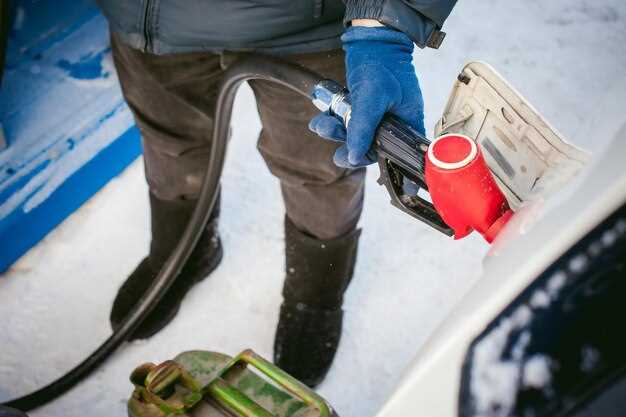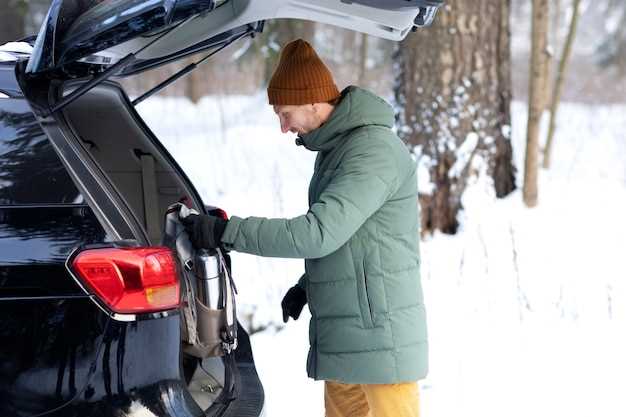

Winter weather poses significant challenges for diesel fuel performance. As temperatures drop, the risk of fuel gelling increases, which can lead to costly downtime and operational inefficiencies. Understanding how to prevent fuel gelling is essential for anyone who relies on diesel engines during the colder months.
Diesel fuel naturally contains paraffin wax that can solidify in low temperatures, leading to gel formation. This process obstructs fuel lines and filters, making it difficult for the engine to draw fuel. Consequently, proper preventive measures are critical to ensure reliable engine operation throughout winter.
One effective approach to combating fuel gelling is to use fuel additives specifically designed for winter conditions. These additives lower the pour point and cloud point of diesel fuel, reducing the chances of wax crystals forming. Additionally, choosing the right type of diesel fuel, such as winter-grade diesel, can also play a significant role in prevention.
Implementing proper maintenance practices, such as regularly checking and cleaning fuel filters, can further mitigate the risks associated with fuel gelling. By taking proactive steps, individuals and businesses can ensure that they are well-prepared to tackle the challenges posed by winter weather and keep their diesel engines running smoothly.
Understanding the Causes of Diesel Fuel Gelling
Diesel fuel gelling is a critical concern during the winter months when temperatures drop significantly. The gelling process occurs when the paraffin wax present in diesel fuel begins to solidify, forming clumps that can block fuel lines, filters, and injectors.
One primary cause of gelling is the natural composition of diesel fuel. Diesel consists of various hydrocarbons, including paraffins, which can crystallize at low temperatures. As temperatures fall, the solubility of these paraffins decreases, leading to the formation of solid particles.
Another factor influencing gelling is the cloud point and pour point of the fuel. The cloud point is the temperature at which wax crystals become visible, while the pour point is the temperature at which the fuel can no longer flow. If fuel is used in conditions colder than these points, the risk of gelling increases significantly.
Fuel quality also plays a crucial role; poor-quality diesel or fuel that has been contaminated with water can lead to accelerated gelling. Water can promote microbial growth, contributing to sludge formation and further complications in cold weather.
To mitigate the risk of diesel fuel gelling, it is essential to understand these causes and take preventive measures, such as using fuel additives designed to lower the cloud point and ensuring that the fuel is free from contaminants before winter sets in.
Best Practices for Preparing Diesel Fuel for Winter Use

To ensure optimal performance of diesel engines during winter months, it is vital to prepare fuel effectively. One of the primary concerns is fuel gelling, which can occur when temperatures drop significantly. This process can lead to clogged filters and potential engine failures.
Start by selecting winter-grade diesel fuel, which is specifically formulated to resist gelling at low temperatures. These fuels contain additives that lower the cloud point, allowing for smoother flow even in freezing conditions.
Regularly monitor the fuel’s cold weather performance by keeping track of the temperatures and conditions in which your diesel will operate. It’s essential to know the expected low temperatures to choose the right fuel blend accordingly.
Additives can significantly enhance winter fuel performance. Utilize anti-gelling additives, which are designed to prevent wax formation and improve fluidity. Follow the manufacturer’s instructions to determine the appropriate amount to use.
Prior to winter, ensure that fuel tanks are clean and free of water, as moisture can lead to microbial growth and further complications. Utilize filtration systems to keep the fuel clean, particularly before the cold season starts.
Consider implementing a fuel maintenance plan that includes regular inspections and treatments. Monitoring fuel conditions and applying treatments in a timely manner will minimize the risk of gelling and ensure reliable engine performance throughout the winter.
Lastly, keep an emergency kit ready, including a fuel heater and spare filters, to address any unforeseen issues that may arise due to fuel gelling. Being proactive in your approach will help maintain the functionality and efficiency of diesel engines during winter months.
Tips for Emergency Situations Involving Gelled Fuel

During winter months, diesel fuel can gel due to low temperatures, causing significant issues for vehicles and equipment. If you find yourself in an emergency situation with gelled fuel, here are some practical tips to manage the issue effectively.
First, try to warm the fuel tank. Park the vehicle in a garage or sheltered area if possible, as this can help retain heat. If you are outside, use a portable heater or warm blankets around the fuel tank to gradually raise the temperature of the diesel.
Next, consider using a fuel additive. There are specific additives designed to prevent gelling and improve fluidity of diesel fuel. Always keep a bottle in your emergency kit, as it can work effectively when added directly to the tank. Ensure to follow the manufacturer’s instructions for proper application.
If the gelling is severe and the fuel pump is clogged, try to use a hand pump or siphon to remove the gelled fuel. You can replace it with diesel that has not gelled, especially if you can access a warmer location to acquire some. Keep a few spare fuel cans filled with winter-grade diesel if you live in colder regions.
Additionally, keep the engine running if it’s warm enough to do so without harm. This will help circulate any remaining liquid fuel through the system. If necessary, disconnect the fuel line, and use heat indirectly to warm the line itself. Avoid direct flames, as this could lead to hazardous situations.
Finally, always check the forecast during winter months and plan ahead. Use winterized fuels, particularly those formulated to prevent gelling, and ensure your vehicle is equipped with appropriate winter additives to minimize the risk of encountering gelled fuel situations. Being proactive is key to preventing emergencies with diesel in cold conditions.






